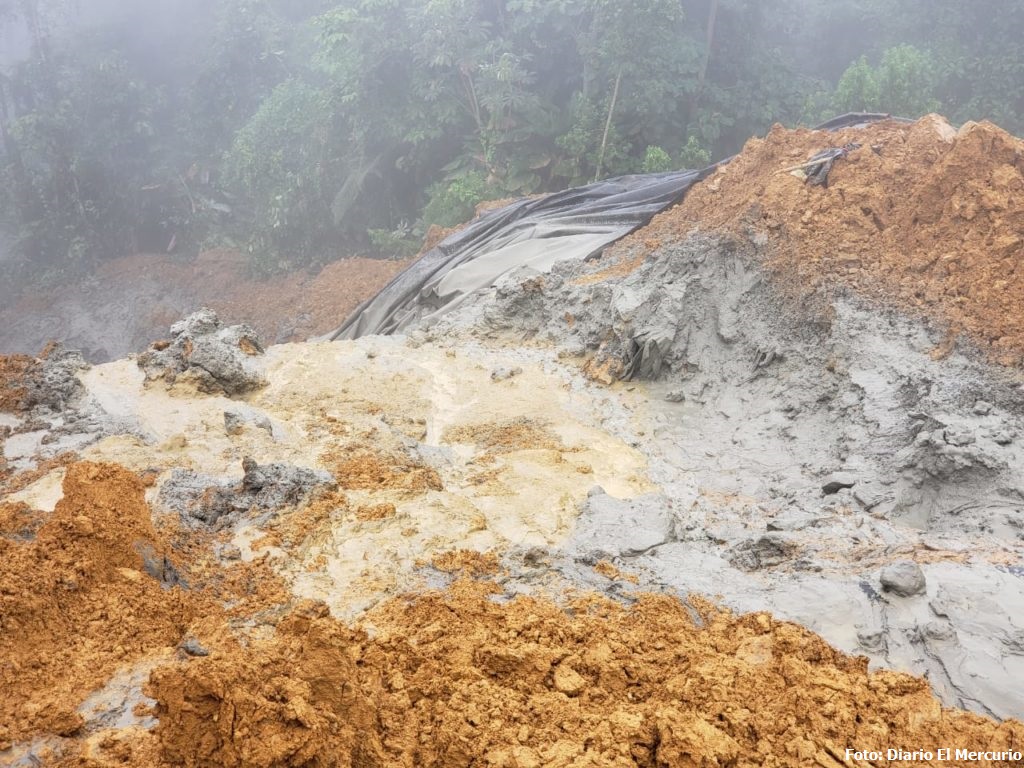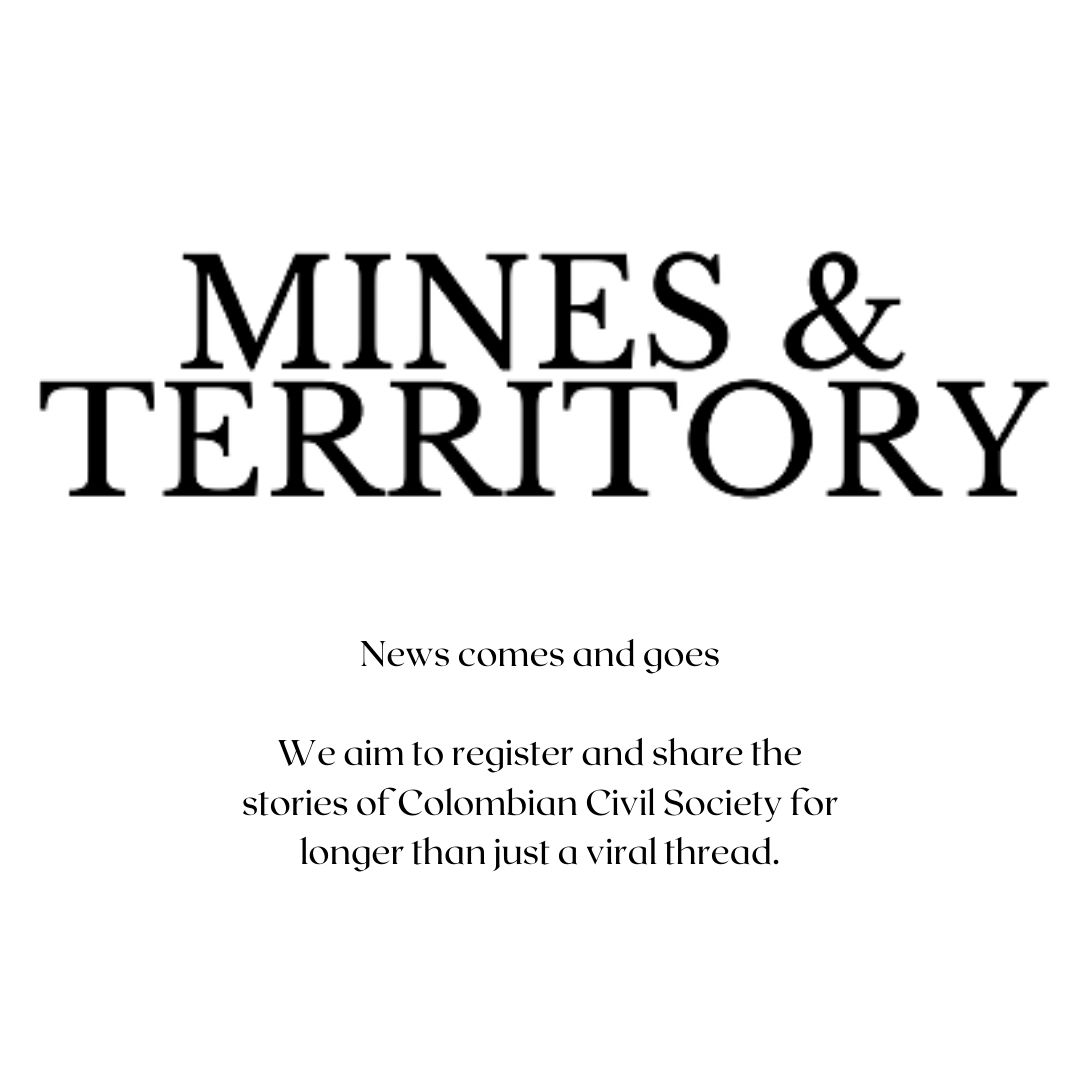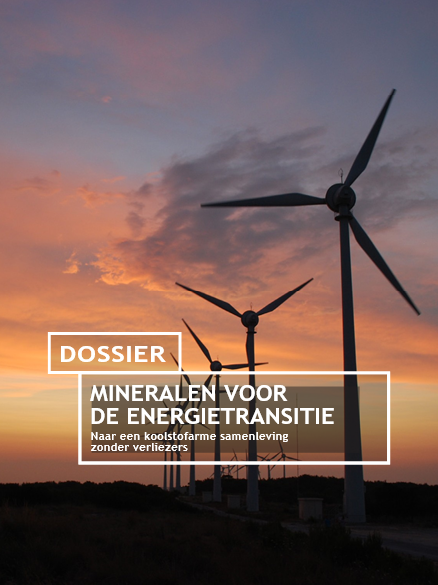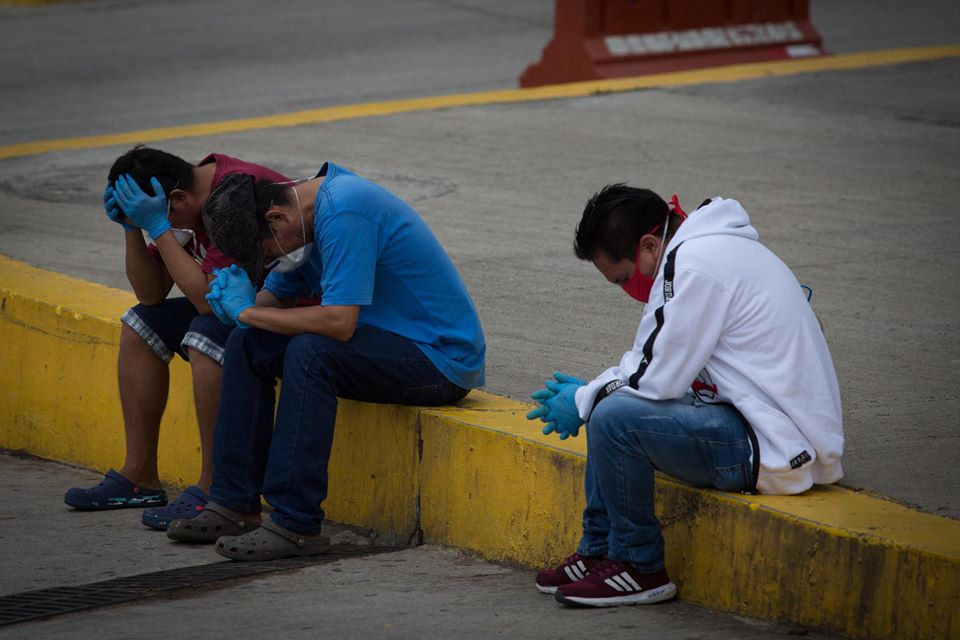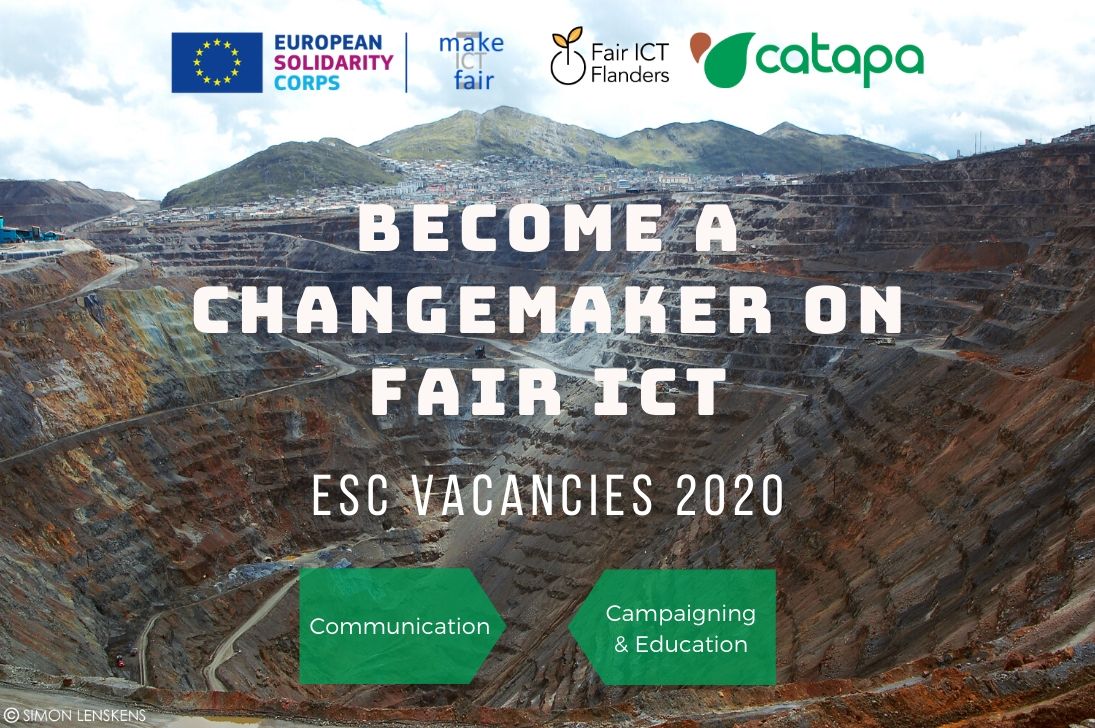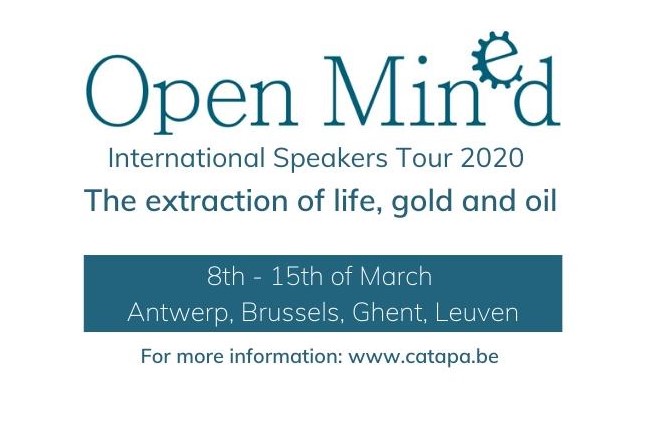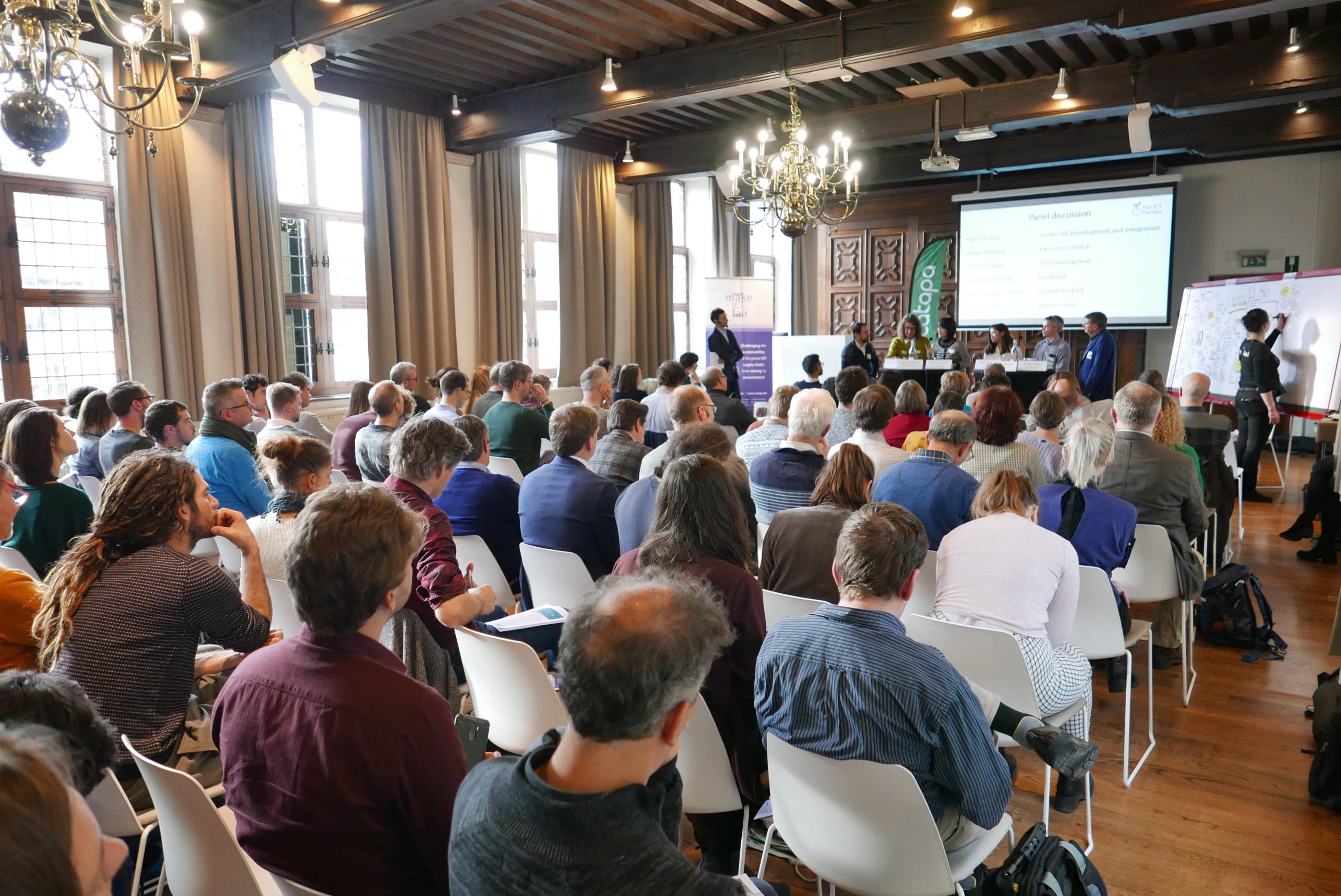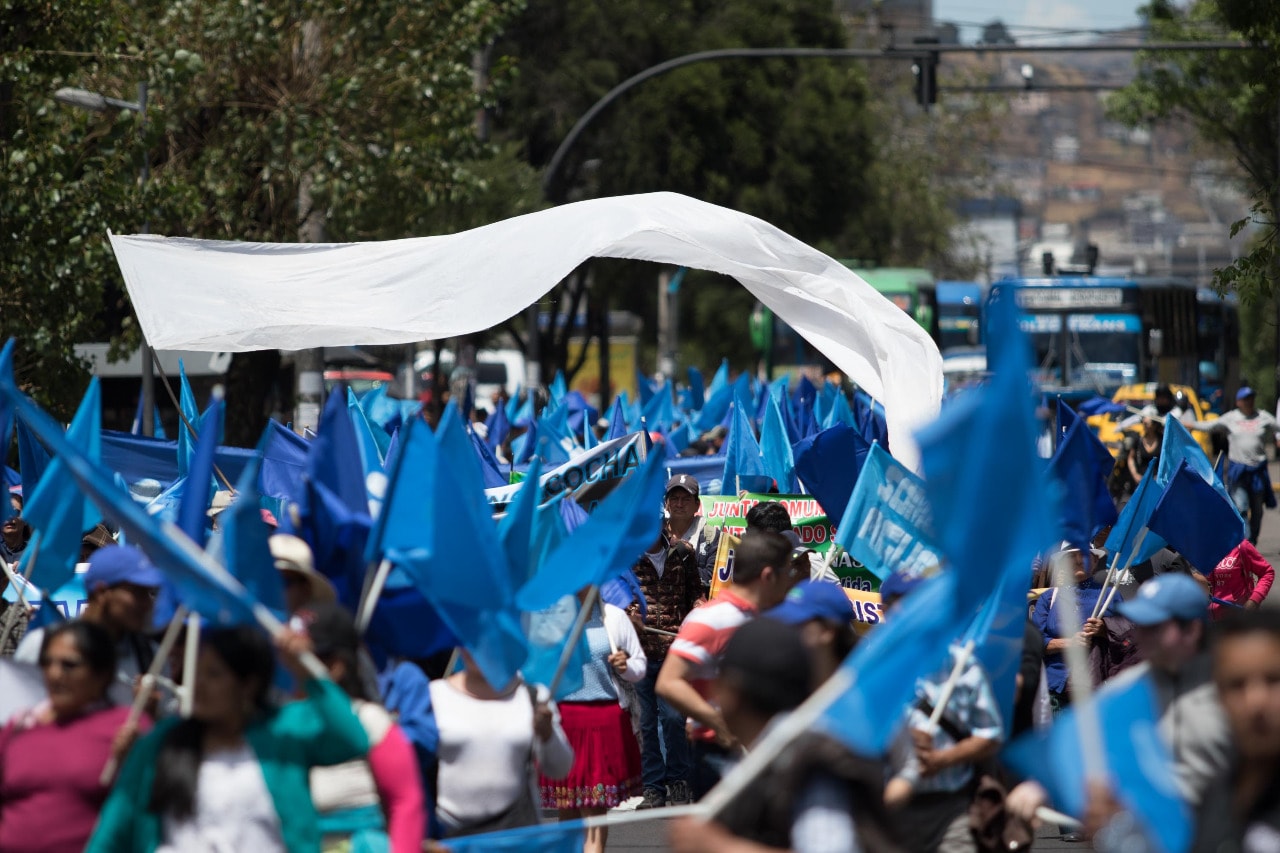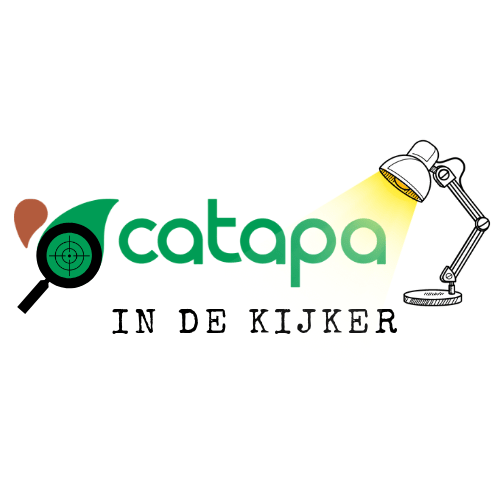We again reached a record. The amount of material consumed by humanity has passed 100 billion tonnes every year*. At the same time the percentage of materials recycled is lower than the years before. In short, we are overconsuming. To satisfy our increasing demand of goods companies look for the lowest production cost, which means bad labor conditions and the generation and accumulation of tons of waste only to get the highest amount of profit. Let’s think together about solutions before there are no resources left!
During the 11th edition of CATAPA’s Open MinEd international speakers tour we focus on the impacts of our constant demand for products and the resources we need to produce them. We will zoom on workers in China, producing our electronic devices in awful labor conditions. We will go to Colombia where everything starts with the extraction of gold, a basic resource in all our ICT products, creates all kinds of problems for communities. And lastly, we put the ecological and social consequences in the spotlight of one of our most important resources: oil. During the diverse events of the speakers tour we will look for answers, search for alternatives to our current way of producing and consuming, highlighting fair initiatives and inspiring movements.
We are glad to host three speakers, witnesses of exploitation and struggle, who are fighting for a just world:
– Lap Hang Au is a member of the Labour Education and Service Network in Hong Kong. He will talk about the workers’ conditions in ICT factories in China and he has specific expertise in the impact of lithium-ion batteries used for electric cars. These are considered fundamental for the Green Transition.
– Antonella Calle Avilés is an Ecuadorian feminist and ecologist. She is active in our partner organization, Acción Ecológica, an environmental organization engaged in campaigns on the impacts of extraction. For years, Antonella has been an environmental rights defender and, at the moment, she is mainly focused on the oil extraction project in Yasuní national park, one of the most biodiverse places on earth.
– Yefferson Rojas Arango is the co-founder of our partner organization COSAJUCA in Colombia. It’s a youth collective successfully fought against a huge open pit-gold project called ‘La Colosa’. Now the collective and Yefferson are focusing on alternatives to mining in the region, such as organic farming. He is particularly interested in agro ecology and medicinal plants.
From 8 – 15 March our international guest speakers will participate in events and lectures in different cities and universities of Belgium, telling their stories and sharing their knowledge.
AGENDA
THURSDAY 5th March
Evening tbc | Opening exhibition: Activism and feminism | ES, NL
@Antwerp – Mundana, Paardenmarkt 74
SUNDAY 8th March
9:30 – 11:30h | ANTONELLA | Ontbijt met een Rebel (Belmundo) | NL
@Ghent – Bond Moyson, Vrijdagmarkt 10 (take the entrance through the door in the street ‘Meerseniersstraat’)
MONDAY 9th March
20h | ANTONELLA | GEC Talks (Belmundo) | NL
@Ghent – Lekker GEC, Koningin Maria Hendrikaplein 6
14:30 – 17h | ANTONELLA | Guest lecture | EN
@Ghent – Universiteitstraat 4, auditorium B
16 – 17:30h | AU | Guest lecture | EN
@Heverlee (Leuven) – KU Leuven Celestijnenlaan 200C-01.06 (aula D) (Campus Heverlee)
8:30 – 9:45h |YEFFERSON | Guest lecture | ES
@Gent – UGent, Abdisstraat 1, auditorium A410
13 – 14:30h | YEFFERSON | Guest lecture | NL
@Gent – Campus aula, universiteitsstraat 4, auditorium D (straatkant, vlak aan kalandeberg)
TUESDAY 10th March
11 – 12h |AU | Webinar from Fair ICT Flanders: Labour conditions in Battery factories in China | ES
@Online
14 – 15:30h | AU | Guest lecture | EN
@VIVES Brugge
18 – 19:30h | AU | Guest lecture | EN
@Gent – address + auditorium to be confirmed
20h | ANTONELLA | Cinema Belmundo, movie screening of By the name of Tania | NL
@Gent – Studio Skoop, Sint-Annaplein 63.
WEDNESDAY 11th March
12:30 – 13:50 | YEFFERSON | Spanish Class | ES
@Antwerp – Universiteit Antwerpen Stadscampus – auditorium tbc
THURSDAY 12th March
9 – 10:30 | YEFFERSON | Guest lecture | EN
@Leuven – KULeuven HIVA Parkstraat 47
13 – 17h | AU | Conference: “Green Transition Challenged by the Metal Supply Chain” | EN
@Flemish Parliament, Brussels https://kuleuven.sim2.be/registration-for-green-transition-challenged-by-the-metal-supply-chain/
FRIDAY 13th March
14:30 – 17:15h | ANTONELLA | Guest lecture: Political issues of sustainability: ecology, justice and North-South relations. The case of mining | NL
@Ghent – UGent, Universiteitsstraat 4, auditorium tbc
10:45 – 12:15h | AU | Guest lecture: Car technology & automotive engineering | EN
@Sint-Katelijn-Waver- KU Leuven Technology Campus De Nayer, Jan Pieter de Nayerlaan 5, ROOM A002
Evening tbc | ANTONELLA & YEFFERSON | Fun(d)raising concert |NL, ES, EN
@Gent – to be confirmed
SATURDAY 14th March
17:30 | ANTONELLA & YEFFERSON | Benefit Dinner Ecuador – Colombia | NL
@Gent – Louisaal (Buurtcentrum Macharius), Tarbotstraat 61A.
SUNDAY 15th March
Morning tbc | YEFFERSON | Brunch with Farmers |
@Brussels – address to be confirmed
Facebook event
*The Circularity Gap Reporting Initiative: a global score for circularity





